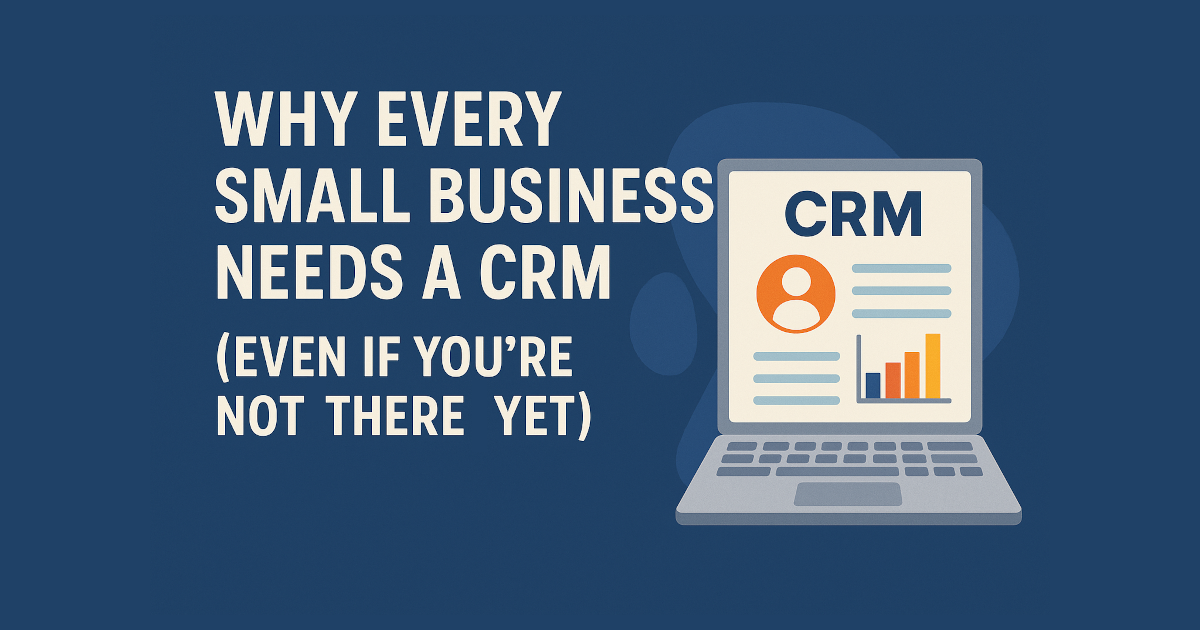In the early days of running a small business, it’s easy to think a CRM (Customer Relationship Management system) is overkill — a fancy tool reserved for larger teams with more clients and complex sales funnels. But here's the truth: if you have customers, you need a CRM. And the earlier you implement one, the more powerful it becomes.
✅ What is a CRM, Really?
A CRM isn’t just software — it’s a strategy for managing all your interactions with potential and existing customers. At its core, it helps you:
- Track communication (calls, emails, meetings)
- Manage leads and sales opportunities
- Store customer contact details
- Schedule follow-ups
- Identify trends in customer behavior
Think of it as your business brain. And it never forgets.
💡 “I’m Not There Yet” — But You Actually Are
We often hear small business owners say:
- “I don’t have enough customers to need a CRM.”
- “I just use spreadsheets and email for now.”
- “We’re still figuring out our sales process.”
But here’s the kicker — those are the exact signs you need a CRM. If you wait until things are messy, you’ll be migrating disorganized data into a new system under pressure. Starting early gives you clarity and structure before chaos hits.
📉 The Hidden Costs of Waiting
Not using a CRM doesn’t mean you’re not managing relationships — it means you’re doing it inefficiently. And that comes at a cost:
- Missed follow-ups = lost sales
- Forgotten contacts = cold leads
- Disjointed communication = poor customer experience
- Manual processes = wasted time
Over time, these small lapses add up and hurt your bottom line.
🚀 The Benefits of a CRM for Small Business
- Consistency Across Your Team
Everyone knows where a deal stands, even if a team member is out sick. - Improved Customer Experience
No more asking “What was our last conversation?” — it’s all in the CRM. - Faster Sales Cycles
Automated follow-ups and pipelines help close deals quicker. - Better Data = Smarter Decisions
Know which marketing efforts are working, and which customers are most valuable. - Scalability
When your business grows, your CRM grows with you — not against you.
🧹 Choosing the Right CRM
You don’t need to start with a massive, expensive system. Many CRMs (like Dolibarr, Zoho, HubSpot, or even custom-built platforms) offer free or low-cost tiers perfect for small businesses. The best CRM is the one you’ll actually use — consistently.
Look for something that:
- Integrates with your existing tools (email, calendar, website)
- Fits your budget
- Has strong support and onboarding resources
- Can scale with your business
💬 Final Thoughts
A CRM isn’t a someday tool — it’s a right now investment. It helps you serve your customers better, grow your sales, and stay organized. Even if you’re a team of one, a CRM helps you act like a team of ten.
So don’t wait until you’re “there.” Start where you are — and watch how far you can go.

